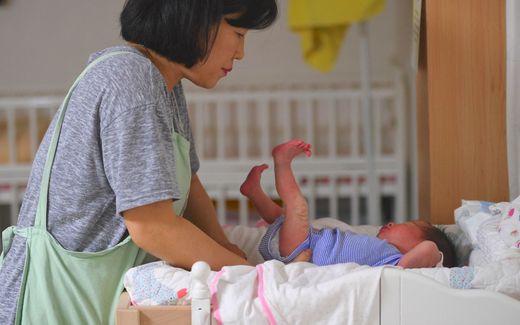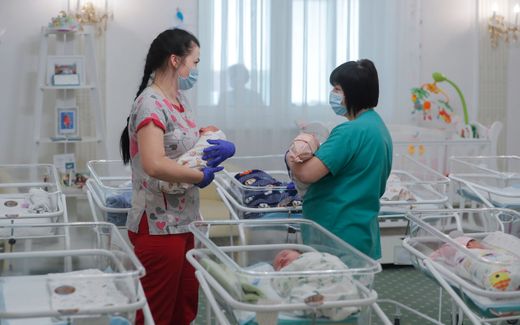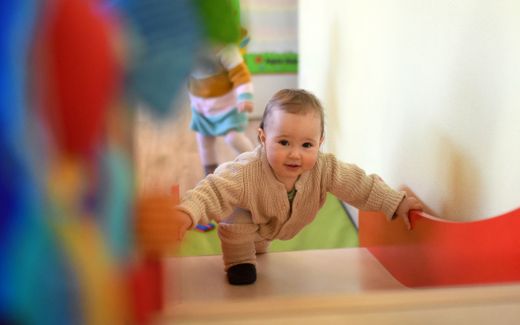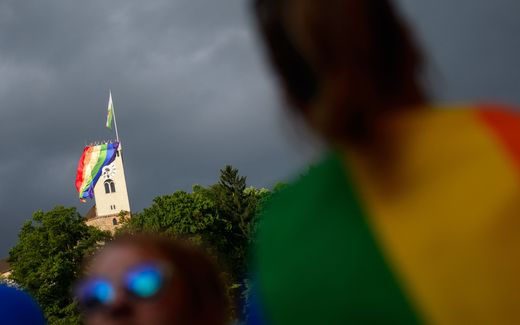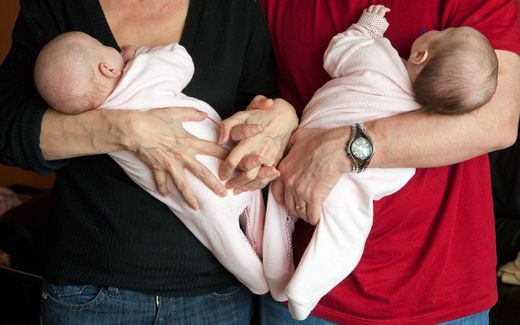Why is optimism about international adoption leaving Europe?
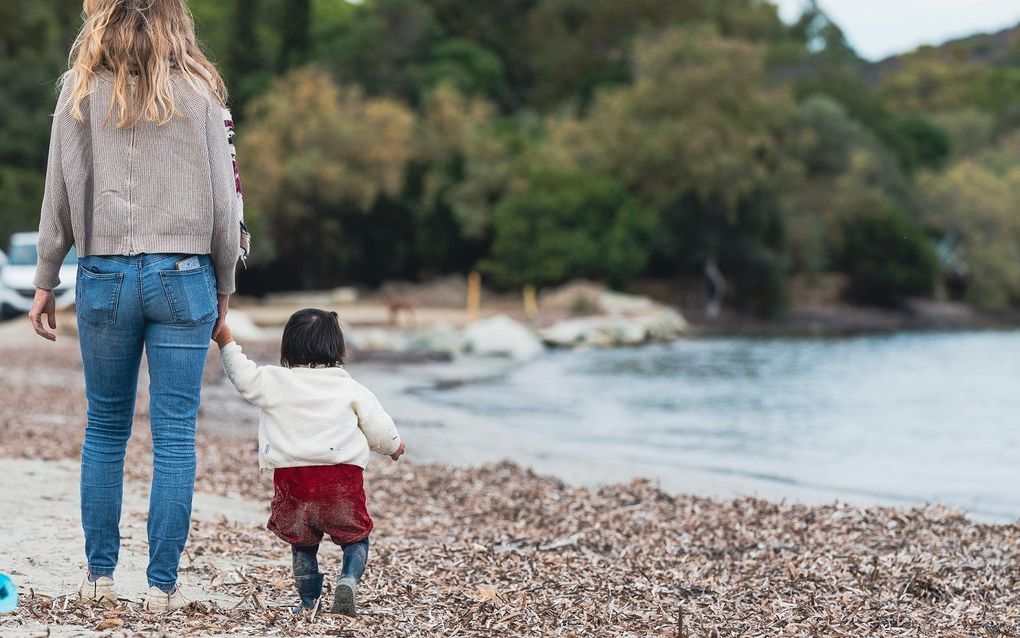
Western mother with adopted child. Photo Unsplash, Guillaume de Germain
European Union
Dilani Butink does not know who she is. The Dutch adoptee from Sri Lanka discovered that her identity was falsified. Her birth date may not be the day she was born. The mother from the photo might be a stranger. How could all this fraud happen?
Critical voices argue that the adoption may be abused as human trafficking. Another example is Maria Diemar, a Swedish adoptee from Chile. She found out that her biological mother was coerced into giving up her child for adoption. According to The Guardian, these forced adoptions were part of the strategy of the military dictatorship to combat poverty by exporting all the poor children. In other cases, mothers were told by hospitals that their child had died, while in fact, it had been given to a wealthy Western family.
International adoptions have been under scrutiny in Europe during the last years. At least seven countries that received adoptees have started to look more critically at their adoption practices in response to complaints from adopted adults that discover that their adoption papers are fraudulous.
Netherlands
International adoption to the Netherlands is only allowed from six countries, namely the Philippines, Hungary, Lesotho, Taiwan, Thailand and South Africa. Earlier, Dutch parents could adopt a child from China, the United States, and Columbia among other countries. The authorities based their decision on the necessity and the need of the countries of origin, whether countries have a good domestic adoption system and the security situation in the region.
The Netherlands introduced a drastic ban on international adoptions in February 2022. The stop came after a special commission concluded in a critical report that the Dutch state had not taken sufficient measures to ensure supervision of adoption procedures, the Dutch broadcaster NOS wrote at the time.
Norway
In Norway, an external government committee is currently investigating foreign adoptions into the country. Norway's Minister for Children and Families, Kjersti Toppe, said that the investigation is necessary to “create trust and legitimacy”, as reported by the Norwegian news website VG.
According to Vart Land, the committee will investigate historical adoptions and look at individual cases if necessary. “If there have been illegalities, they will come to light”, Toppe said to VG. “We have to see if there are risks with more recent adoptions as well”, she added.
The report of the commission is scheduled to be presented in 2024.
France
Last November, France launched an investigation into abuses in its foreign adoption practices. It announced so in a press release, as reported by Ouest France.
It wants “to identify the illicit practices from the past to prevent them from recurring”, the press release specified. Furthermore, it wants to “respond to the requests of adoptees.” The committee aims to present its results within six months.
Hague Adoption Convention
The Hague Adoption Convention was introduced in 1993. That year, 93 countries signed an agreement to cooperate concerning international adoption, the Dutch adoption organisation Fiom writes. The list of countries includes both countries of origin and countries that adopt children.
The convention contains agreements that aim to prevent any illegalities in adoption procedures. That means that it puts the interests and the rights of children at the centre. Child trafficking and mediation by shady people or organisations, for example, are forbidden.
The countries that belong to the Hague Adoption Convention all have the same procedure for international adoption. Adoptions that have been recognised by a country that is part of the convention, will be recognised by all the other countries of the convention as well.
At the beginning of 2022, the French government passed an adoption reform proposal. Since then, international adoptions must involve an organisation that is authorised by the French Adoption Agency.
Furthermore, France has suspended adoptions of Ukrainian children until at least December 2023. That is reported by Madmoizelle. The measure is to protect children against being taken from their known surroundings in times of crisis.
Currently, there is an investigation of the French organisation Sunbeam of the Foreign Child (RDSEE). On September 6, the Paris court in Paris ordered so, Le Monde reports. The organisation is accused of concealment of fraud and deception of biological and adopting parents
Sweden
The Swedish government ordered an investigation of international adoption in October 2021. That is stated by a Finnish report on European adoption investigations. The government wanted to find out whether illegalities and abuses have taken place in international adoptions and how the adoption system in Sweden has functioned over time.
In 2021, it came to light that thousands of children were adopted into Sweden with incorrect documents. A parliamentary investigation showed that the trade in children had been ongoing for fifty years.
However, based on the results of the October research, the National Treasury of Sweden concluded that the current adoption system is effective in protecting children's rights and interests. It stated that the Hague Convention (see text box) and improvement of international cooperation decreased the number of illegalities.
Yet, the authorities did some recommendations for improvements. One of them advises the MFoF, the supervising and licensing authority for international adoptions, to pay more attention to the adoption process.
Denmark
Already in 2019, the Danish Ministry of Social Affairs and Housing drafted a report with recommendations for more safeguards in adoption procedures. It included measures to avoid corruption of adoption agencies in Denmark and guidelines to improve cooperation with countries of origins. Another option would be to give the state of Denmark more responsibility for ensuring that adoption processes are legal.

In 2021, Denmark published a report on adoptions from Chile that took place between 1978 and 1988. It turned out that there was a lack of safeguards, checks and balances, the report on European adoption investigations states. Therefore, the state cannot guarantee that all the adoptions from this time were legal.
In the spring of 2022, a new report was published on adoptions from other countries, such as Bangladesh, Colombia and Indonesia. This investigation came after The Netherlands discovered irregularities in adoptions from these countries. During this research, Denmark concluded that children had been adopted into the country without birth certificate and adoption documents.
Finland
The discussion about the legality of international adoptions also plays in Finland. Therefore, the Finnish Ministry of Social Affairs and Health drafted a report with an overview of the investigations in several countries to get more information and compare Finland to other countries.
One difference between Finland and other countries is that Finland started later with international adoptions, which gave the country the advantage of better regulations and more examples in this area. According to the Ministry of Social Affairs and Health, “extensive adoption activities have always been regulated by law in Finland.”

Switzerland
Switzerland finished a study on its international adoption history in 2020. It researched mainly the adoption practices of children born in Sri Lanka. The report showed very serious violations of the rights of these adoptees. An example of this, is the existence of the so-called baby farms where children were born just for the purpose of adoption and financial gains. In addition, documents had been falsified and women had been exploited. That is reported by the Finnish Social Health Ministry in a report on adoption investigations. At the same time, the Federal authorities in Switzerland did not take actions, despite being aware of the abuses.
After the report was published in 2019, the Federal council admitted its shortcomings in monitoring international adoption activities. It expressed its regret for this to adoptees and their families.
In 2022, the Federal Council started a pilot to help Sri Lankan adoptees trace their roots and find their biological family. To that end, it provides financial support to the organisation Back to the Roots which helps adoptees in their search.
Related Articles


